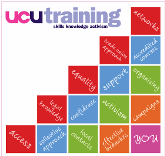A brief intro to being a rep
11 August 2010
The purpose of any trade union is to advance the interests of its members. Unions do this by negotiating collective agreements and by lobbying to improve laws that affect the membership.

UCU's education programme offers its growing network of activists a wide range of courses. Courses are delivered on a regional basis so are therefore an ideal opportunity for members to learn from and network with reps from different branches within their region.
Find courses in your area:
Midlands • North West • Northern • South West • Southern • Yorkshire and Humberside • Northern Ireland • Scotland • Wales
Whether you are an existing UCU activist or you are considering taking on a more active role within your UCU branch we have a course for you.
Unions also represent their members by seeing that employers do not violate their collective agreements or laws (health and safety, human rights, etc) that affect the members.
Colleges and universities sometimes want to have a free hand to provide services as cheaply as possible. This means that union members must work together to force employers to pay staff properly, to provide safe working conditions, provide us with job security, etc.
Even in the worst of times unionised staff do better than those with no protection.
The difference between members of an effective union and unorganised staff, or members of a passive branch or local association (LA), is the difference between bargaining and begging.
The difference between bargaining and begging is the power to effect change. Unionised staff who act together and support one another have more power than individual staff who often can't even complain about working conditions, harassment by supervisors, racism, or being passed over for promotions for fear of being labelled a troublemaker.
In short, members of strong branch or local associations have a lot more say about what happens at work compared to staff with weak or nonexistent unions.
Unions are not just insurance policies where you pay your dues and expect someone to solve your problems for you.
Unions are self-help organisations where the members work together in order to solve common problems.
Your role as a workplace rep
The rep is primarily a problem solver. In some cases, 'solving' could mean mediating a dispute between two members, talking informally to a line manager, helping a member to submit a written grievance, or referring a problem to the local committee.
A rep builds confidence and promotes mutual support.
Confidence and mutual support are achieved when the rep involves other staff in the creative resolution of a member's problem or grievance.
The rep encourages members to find solutions together by facilitating problem solving.
The rep is also the key link between the membership and the leadership of branches/LAs.
The rep should pass on important information about union activities and encourage membership involvement in union activities.
He or she should also pass on complaints about the union to the local committee.
Since effective reps have a good understanding of the problems and concerns of the members they represent, they should be consulted about things such as management proposals and campaigns undertaken by the branch/LA, so that the concerns of the membership are taken into account before any of these proposed activities are adopted.
Duties of department reps
Departmental reps should:
- introduce themselves and explain their function to all new members in the department or immediate workplace
- explain the role of the union to new members
- investigate all complaints made by members and pass on to the committee if they cannot be resolved informally
- attempt to deal with complaints that are not grievances with informal discussions with managers, union members, or members of the union executive
- act as a referral agent for members with personal problems that require expert assistance
- keep the committee informed about all complaints and how each has been dealt with
- keep members informed about important settlements made by the local association
- encourage members to attend meetings where negotiating issues will be discussed
- pass on the members' priorities to the committee
- ensure that the members are informed about all membership meetings and about important being discussed at these meetings
- pass on complaints about the union and about any barriers to union activity to the committee
- keep union bulletin boards up to date.
Tips for reps
- Introduce yourself to all new employees and make sure they understand your function.
- Keep the members informed about union activities by distributing notices of meetings, agendas, minutes of meetings, union publications, information about important grievances, settlements etc.
- Never turn anyone away that comes to you with a complaint. You may not think the problem is important but the person complaining probably feels differently.
- Listen carefully, take notes and ask questions to clarify the basis of the problem and the desired solution. If you think you need advice, contact the committee.
- PrintPrint this page
- Share

